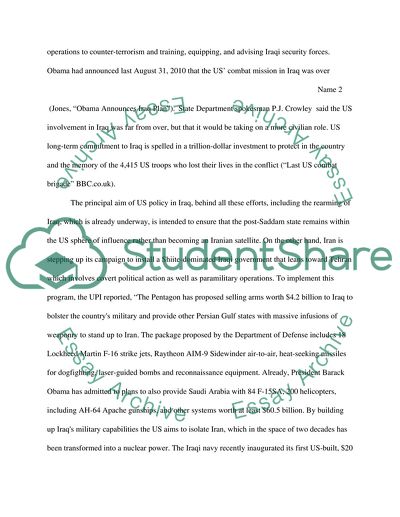Cite this document
(The Diplomatic Role of Residual US Forces in Iraq Research Paper, n.d.)
The Diplomatic Role of Residual US Forces in Iraq Research Paper. Retrieved from https://studentshare.org/politics/1750587-now-that-iraqi-sovereignty-has-been-restored-as-of-january-1-2009-what-is-the-diplomatic-role-of-residual-us-forces-in-that-country
The Diplomatic Role of Residual US Forces in Iraq Research Paper. Retrieved from https://studentshare.org/politics/1750587-now-that-iraqi-sovereignty-has-been-restored-as-of-january-1-2009-what-is-the-diplomatic-role-of-residual-us-forces-in-that-country
(The Diplomatic Role of Residual US Forces in Iraq Research Paper)
The Diplomatic Role of Residual US Forces in Iraq Research Paper. https://studentshare.org/politics/1750587-now-that-iraqi-sovereignty-has-been-restored-as-of-january-1-2009-what-is-the-diplomatic-role-of-residual-us-forces-in-that-country.
The Diplomatic Role of Residual US Forces in Iraq Research Paper. https://studentshare.org/politics/1750587-now-that-iraqi-sovereignty-has-been-restored-as-of-january-1-2009-what-is-the-diplomatic-role-of-residual-us-forces-in-that-country.
“The Diplomatic Role of Residual US Forces in Iraq Research Paper”, n.d. https://studentshare.org/politics/1750587-now-that-iraqi-sovereignty-has-been-restored-as-of-january-1-2009-what-is-the-diplomatic-role-of-residual-us-forces-in-that-country.


